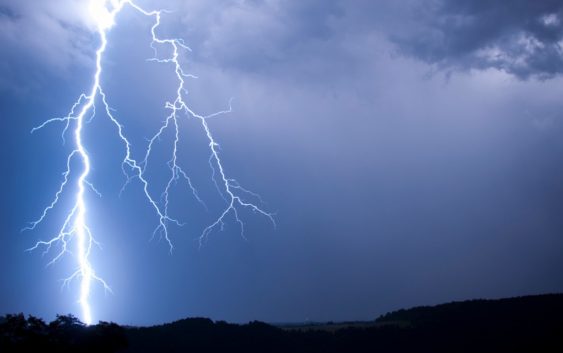- Fake job seekers are flooding the market, thanks to AI
- One set of evacuation orders lifted in Caldwell County after wildfire contained
- 'We gutted every building' | Chimney Rock rebuilding after Hurricane Helene
- 'We gutted every building' | Chimney Rock rebuilding after Hurricane Helene
- Debris from Hurricane Helene provides fuel, complicates containment for spring wildfires
These are the most reliable ways to receive severe weather alerts

A NOAA weather radio or your cell phone is much better than a tornado siren.
Keeping your family safe during severe weather is about keeping yourself informed. Every second matters when it comes to getting to safety!
The National Weather Service provides, on average, a thirteen-minute lead time ahead of a tornado. But sometimes, a warning may only arrive mere minutes before the tornado.
Despite the popular convention, tornado sirens should not be your primary way of receiving warnings.
While some areas, like York County, South Carolina, continues to operate sirens, not all municipalities use them. And those that do, may have their own rules and regulations.
Even as far back as 2011, NOAA warned against the reliance on sirens, stating in the aftermath of a tornado outbreak:
“Many people expected to hear sirens for a potential tornado even in areas where no sirens existed.”
Instead, a NOAA weather radio can be used to alert you to severe weather – even in the middle of the night.
Much like a smoke detector, a weather radio sounds an alarm to wake you and alert you to the impeding danger.
The NWS uses legacy radio signals to operate a network of transmitters around the country. The system has resiliency against power and internet outages.
Those same alerts will also appear on broadcast media – including here on WCNC Charlotte where they will scroll across the bottom of your screen and appear as push notifications on our app.
For the latest weather alerts, download the WCNC Charlotte mobile app and enable push notifications.
If you’re streaming severe weather coverage – it’s also important to remember there may be a delay.
This makes multiple options even more critical to your safety and creates life-saving redundancy. And when storms threaten, you can stay weather aware with us on-air and online.
WCNC Charlotte’s Weather IQ YouTube channel gives detailed explainers from the WCNC Charlotte weather meteorologists to help you learn and understand weather, climate and science. Watch previous stories where you can raise your Weather IQ in the YouTube playlist below and subscribe to get updated when new videos are uploaded.